Back in May – as all two of you readers may already know – I attended my third World Tea Expo. The Finest Brew’s booth was easily a tea blogger favorite. The company was run by two Sri Lankan borthers, and they possessed some weird things I’d never seen before. They had no problem showing off their weird wares to us.
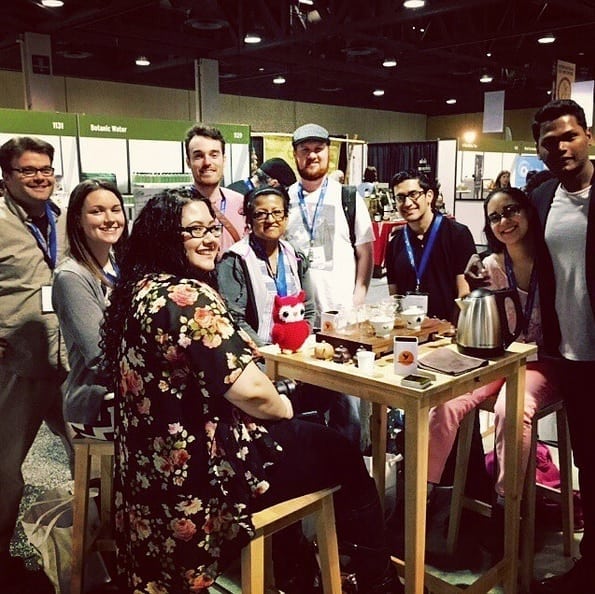
Before leaving the Expo, they made it a point to gift me with two unique white teas. Both were made in the same style – that of Yue Guang Bai (Moonlight White), a white tea from Yunnan province, China. The kicker though? Only one of them was from Yunnan. Yiwu Mountain, to be precise.
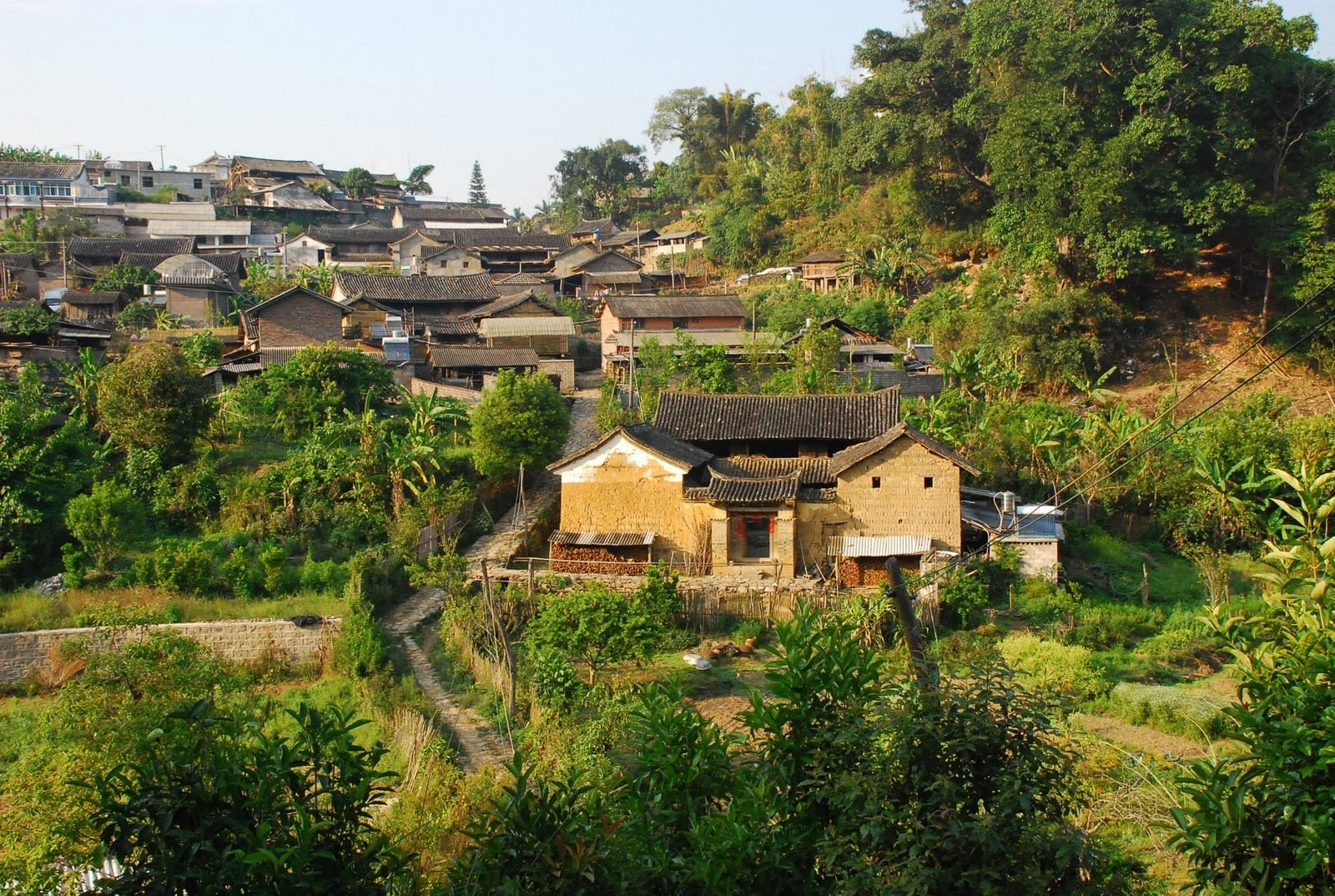
The other was produced on a small plot of land on the New Vithanande tea estate in southern Sri Lanka (Ceylon).
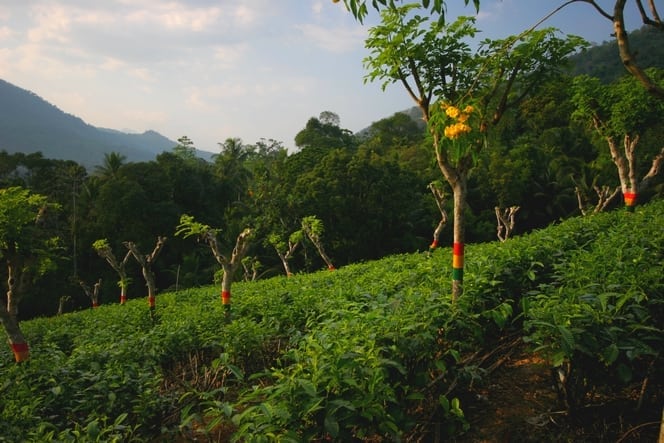
What was even weirder; both teas were produced using the same cultivated variety of tea plant – a so-called “purple leaf” cultivar of assamica. The only differences between the two white teas was their terroir and age. The Yunnan-produced stuff was crafted in 2011, whereas the Sri Lankan batch was harvested in 2014. It was only a matter of time before I subject them both to a side-by-side . . . tea fight.
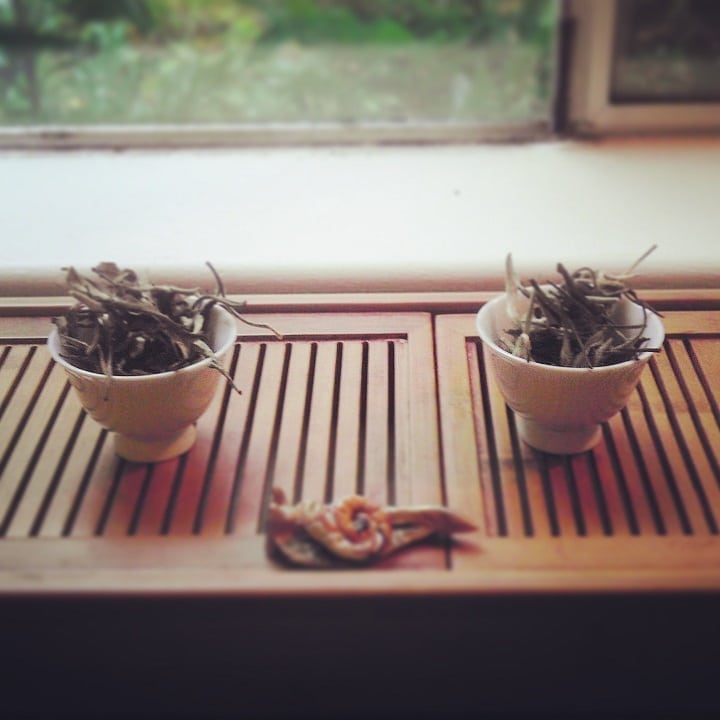
The leaves for the Yunnan-grown, Yiwu-picked white tea were huge! Definitely betraying their assamica origin, just in the sheer size of the leaves; even when rolled, they looked like they could choke a small woodland creature. The buds and stems were furry and ranged from light green to dark purple, also giving away their “purple cultivar” background. What set this apart from other Yue Guang Bai whites was the aroma. This smelled like a veteran, betraying a maocha-ish, proto-pu-erh aroma – earth with a hint of flowers.
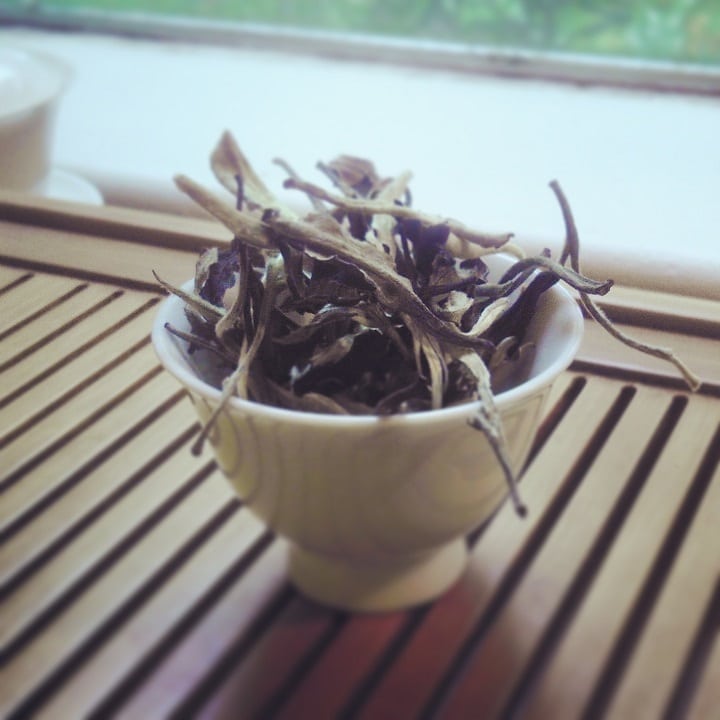
As for the Sri Lankan grown Moonlight knock-off, the leaf appearance was . . . exactly the same. No detraction. There were buds, stems, and regular young leaves, and they were – like the Chinese stuff – huge! Colors were the same, too – light green to purple. The only major difference was the fragrance. This smelled newer, sweeter – an ingénue in comparison.
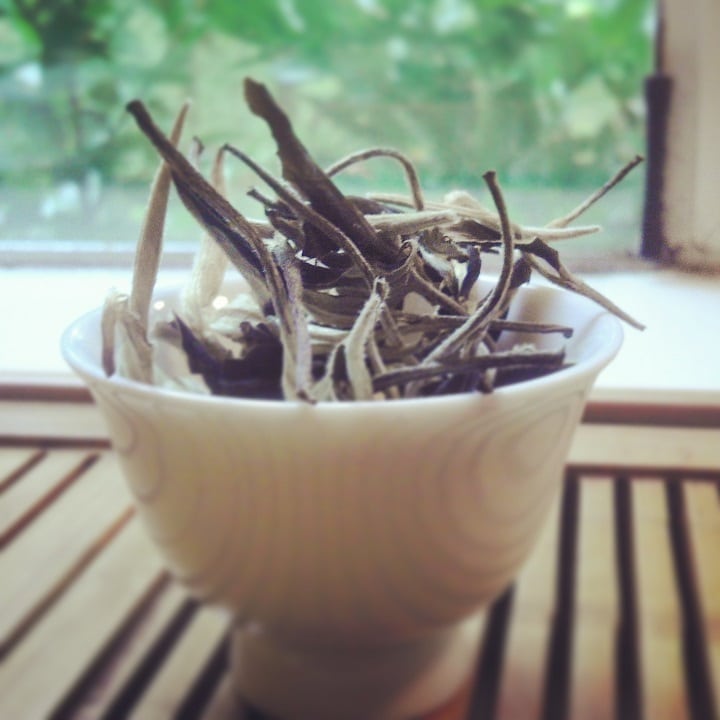
I approached both the same way, guesstimating about a tablespoon of large leaves. Then I placed them each in their own gaiwan, filled both to the brim with 175 F water, and steeped for almost three minutes. There was plenty of margin for brewing error because these leaves looked like they could take an accident or two.
The Yiwu-grown stuff brewed to a light-to-medium yellow with a sage-y sweet aroma on the cup. The flavor was incredibly quenching, rotating between a forest-like sensation and a sweet, stonefruity presence. It was actually far less rough and hay-tasting, compared to other Yunnan Moonlights.
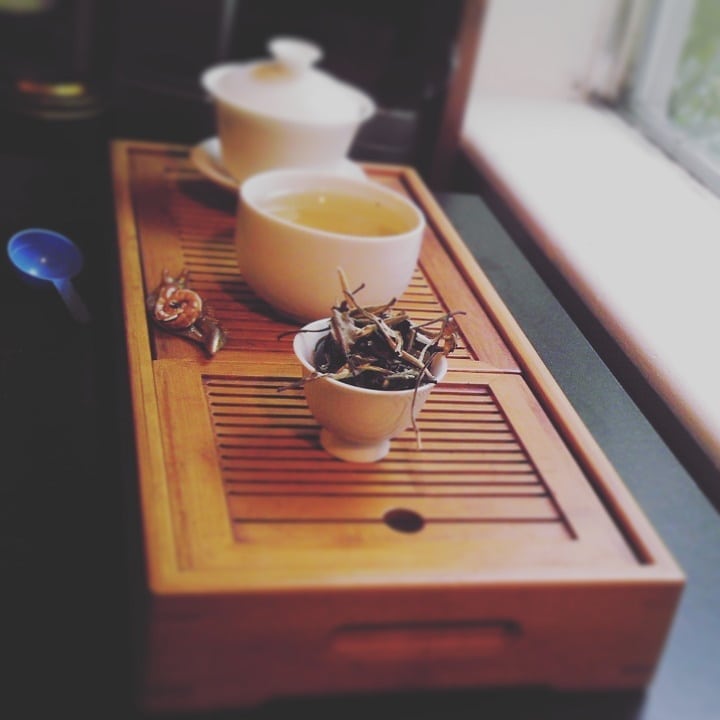
I’m blaming it on the terroir. Yiwu produced some deliciously layered pu-erhs, so it wasn’t hard to believe the same could happen with white teas. Speaking of pu-erh: Very little of the white tea’s four years of age showed up in the sip, save for a honey texture in the trail-off.
The Ceylon-produced stuff brewed a little lighter than the Yiwu, imparting a softer yellow liquor color to the cup. An aroma was there but very faint, something akin to melons and herbs.
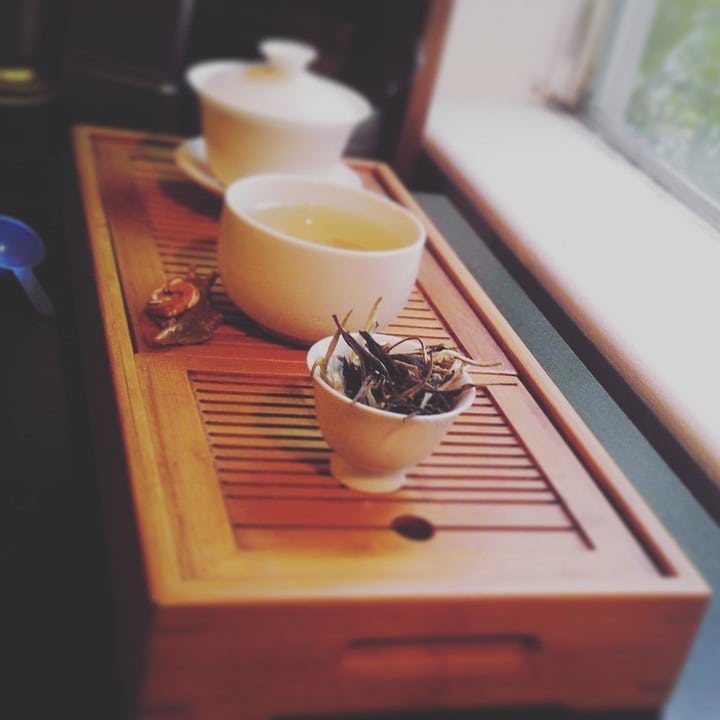
The taste was smooth, equally as refreshing as the older stuff, but with a far sweeter introduction. That sweetness held on throughout the sip, along with a very mild lemony tang in the top note. The aftertaste lingered, but didn’t overstay its welcome. Nowhere near as robust as the Yiwu stuff, but showing off some similar nuances – if lighter.
So, did I notice a difference between the two? Yes. The Sri Lankan stuff was noticeably sweeter, like some other Ceylon Silver Tips whites I’d tried. But only faintly. The Yiwu Moonlight’s only main difference was a subtle, sage-y note, and a clear difference in age that translated to the taste. Other than that . . . nope, they’re kin. If I tasted these blind, I wouldn’t have known the difference. Don’t know if I would’ve cared, either.
I’m calling this tea fight a draw.
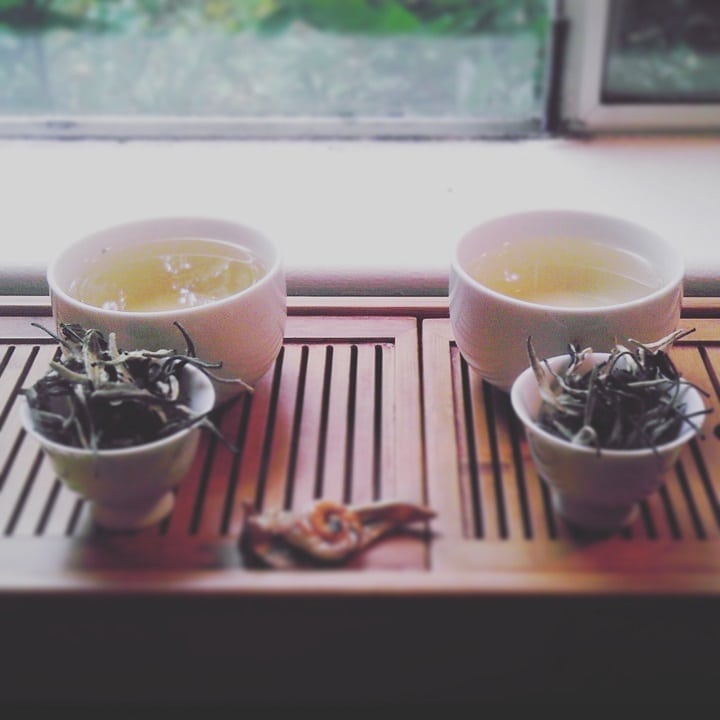
Leave a Reply